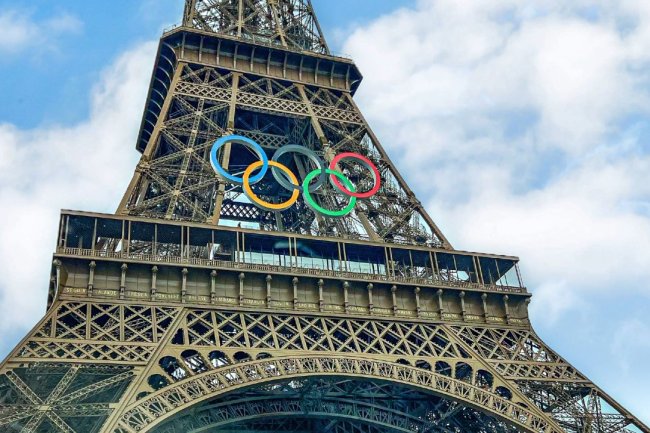EURO 2024 in Germany!
Which cities will host European Championship matches
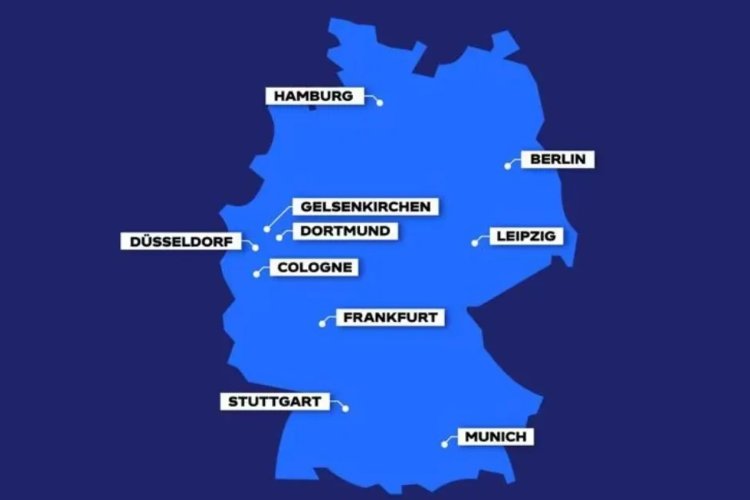
Football fans, this article is especially for you! The 2024 European Football Championship will take place in 10 top-class football arenas in Germany, from the Olympiastadion in Berlin to the Volksparkstadion in Hamburg. EURO 2024 will be the first major tournament in Germany since 2006, when the country hosted the World Cup. The tournament will be held in 10 cities across the country, and we will talk about the history of the stadiums, their capacity and also highlight the main attractions of the cities where they are located: Hamburg, Gelsenkirchen, Dortmund, Dusseldorf, Cologne, Leipzig, Munich, Frankfurt and Stuttgart.
Berlin - Olympiastadion
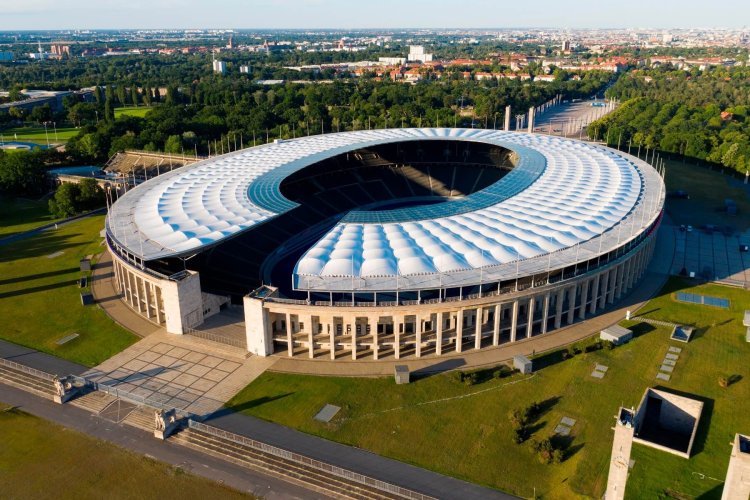
Capacity: 74000
Stadium host: Hertha Berlin
After the country's reunification in 1990, Berlin again became the capital and regained its title as one of the world's centers of culture, sports, fashion, architecture and nightlife. If this is your first time here, be sure to visit the Brandenburg Gate and the city's huge 368-meter-high TV tower, which offers stunning views.
The largest stadium of EURO 2024, which has hosted the German Cup finals since 1985, has hosted several significant international matches. In 2006, this stadium in Berlin hosted the World Cup final between Italy and France, and in 2015, Barcelona defeated Juventus in the Champions League final.
Hamburg - Volksparkstadion
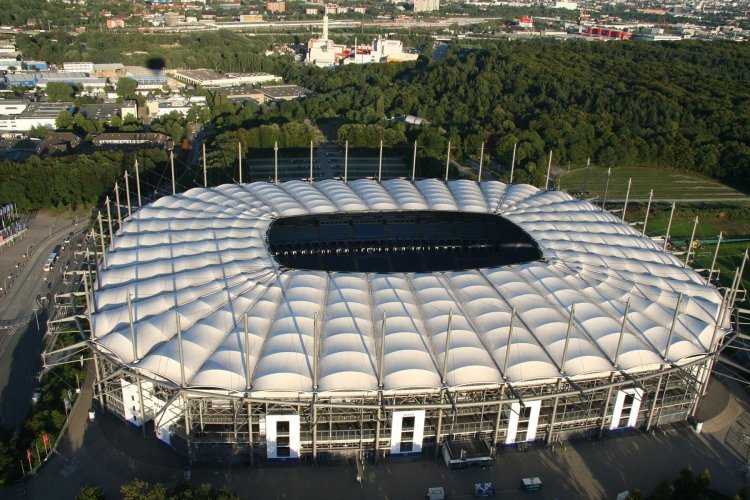
Capacity: 51000
Stadium host: FC Hamburg
Hamburg, the third largest city in Europe excluding the capitals, is famous for its world-famous port, rich cultural traditions, many beautiful old buildings and vibrant nightlife.
The Volksparkstadion opened to the public in 1953 and underwent its first major renovation in 2000, turning it into a purely football arena. This stadium hosted matches of the 1988 European Championship, as well as the 1974 and 2006 World Cups.
Gelsenkirchen - Veltins Arena
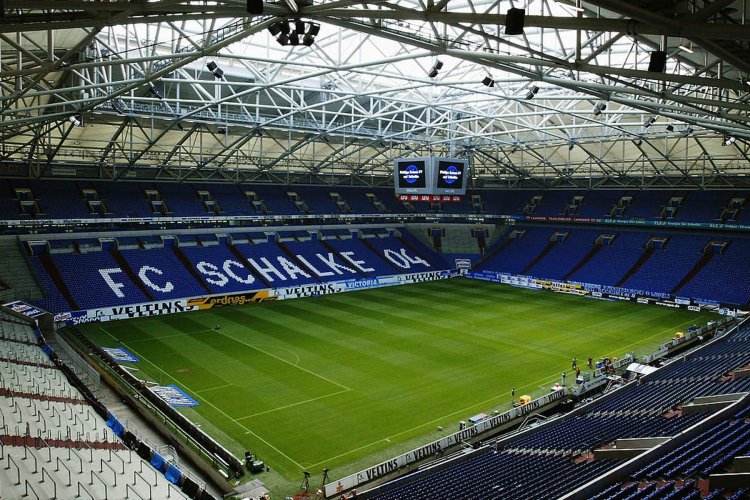
Capacity: 62000
Stadium host: FC Schalke
Gelsenkirchen thrives on the coal and steel industries, but today it is not only an important industrial center, but also an attractive and very green place to go to the theater or take a boat trip on the Eschmer River.
Opened in August 2001, Veltins-Arena, formerly "Arena AufSchalke», is the home of Schalke, a seven-time German champion and winner of the 1996/97 UEFA Cup. This stadium features a retractable pitch and a closing roof. At the 2006 World Cup, Portugal defeated England in a penalty shootout, with Cristiano Ronaldo scoring the decisive penalty kick.
Dortmund - BVB-Stadion
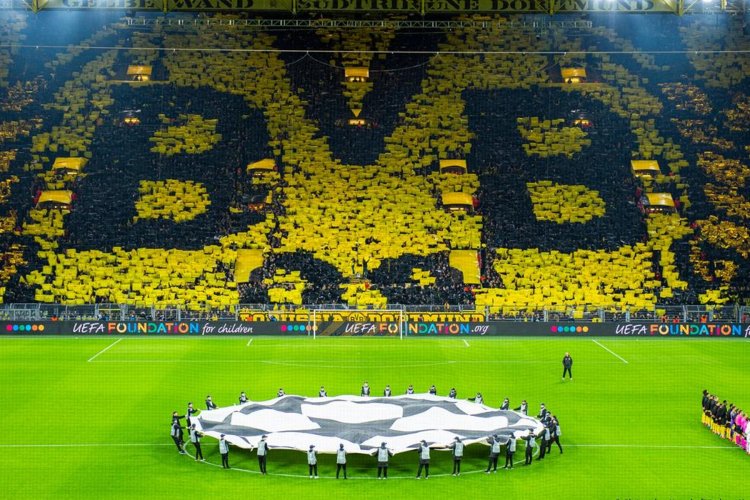
Capacity: 81000
Stadium host: Borussia Dortmund
Dortmund became the cultural center of the Ruhr region, although previously it was known mainly for its coal, steel and brewing industries. Over time, the city has developed into a technological center with a developed cultural and an active sports life, which can be explored at the local German Football Museum.
The BVB-Stadion is known throughout the world for its famous Yellow Wall stand. This home stadium of Borussia Dortmund seats more than 60 thousand spectators and is one of the largest sports arenas at EURO 2024. Many significant matches of the World and European Championships took place here, and in 2001 the famous UEFA Cup final between Liverpool and Alaves took place in this arena.
Düsseldorf - Merkur Spiel-Arena
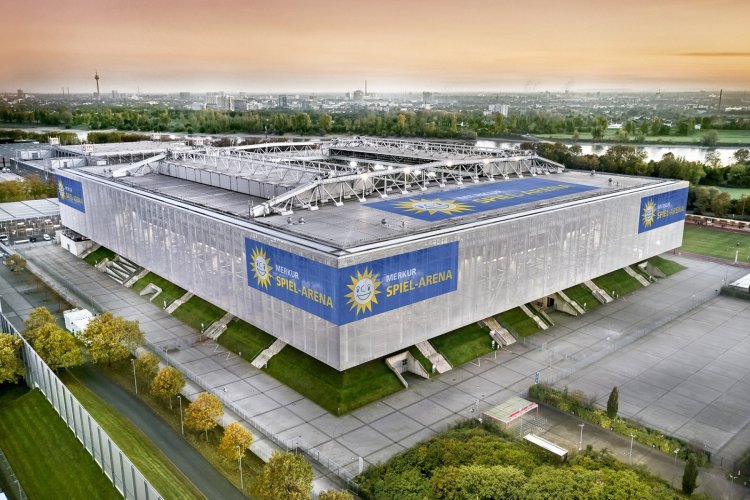
Capacity: 54000
Stadium host: Fortuna Dusseldorf
Düsseldorf is the administrative center of North Rhine-Westphalia with a population of 650 thousand people. Its old town is known as the "longest bar in the world" due to its more than 250 pubs and restaurants. Definitely worth a look here!
The Merkur Spiel-Arena is one of the smallest stadiums at the 2024 European Championship, but even so it can accommodate more than 45 thousand spectators. The stadium is home to Fortuna, which has not competed in the Bundesliga since the 2019/20 season.
Cologne - RheinEnergieStadion
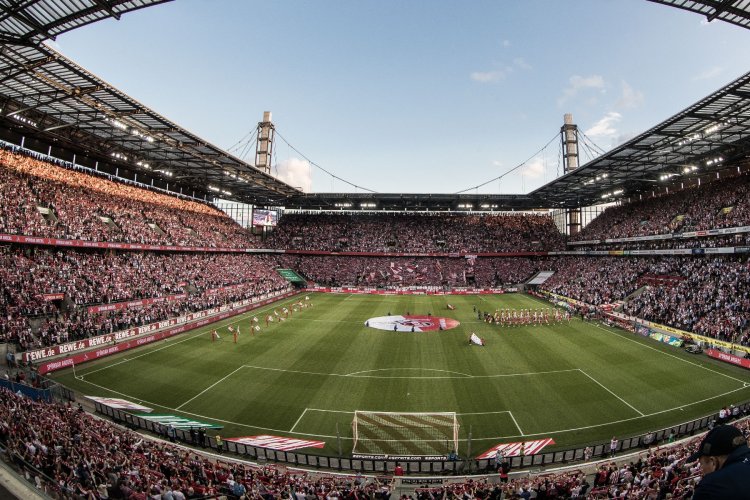
Capacity: 50000
Stadium host: FC Cologne
The history of Cologne, located on the banks of the Rhine River, goes back more than two thousand years. Now it is one of the largest cities in Germany with a population of more than a million people. The local St. Peter's Cathedral is Germany's most popular attraction and is included in the UNESCO World Heritage List.
The Cologne stadium is one of the smallest at EURO 2024. It was reconstructed before the 2006 World Cup and since 2010, the arena has regularly hosted German Women's Cup finals, hockey and American football matches, as well as major concerts.
Leipzig - Red Bull Arena
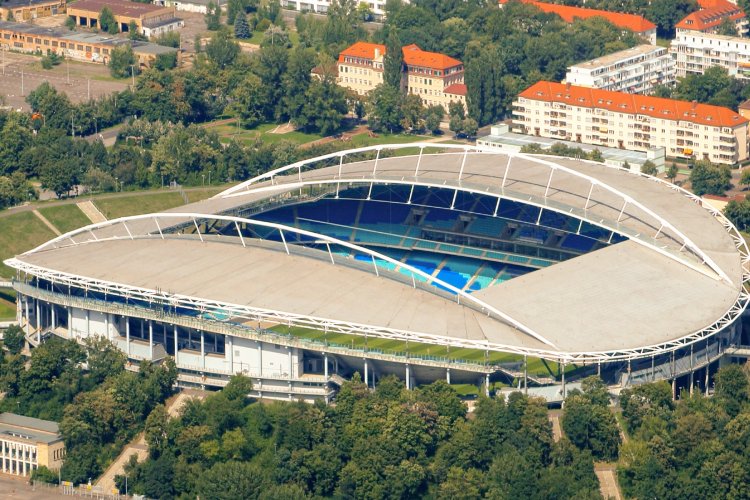
Capacity: 44000
Stadium host: FC Leipzig
Leipzig, a significant cultural and historical center of Germany, was the home of Johann Sebastian Bach, and the peaceful protests that took place there in late 1989 played a key role in German unification.
RB Leipzig's modern arena, with its impressive roof, opened in 2004 on the site of the former Centralstadion, East Germany's largest stadium.
Munich - Allianz Arena
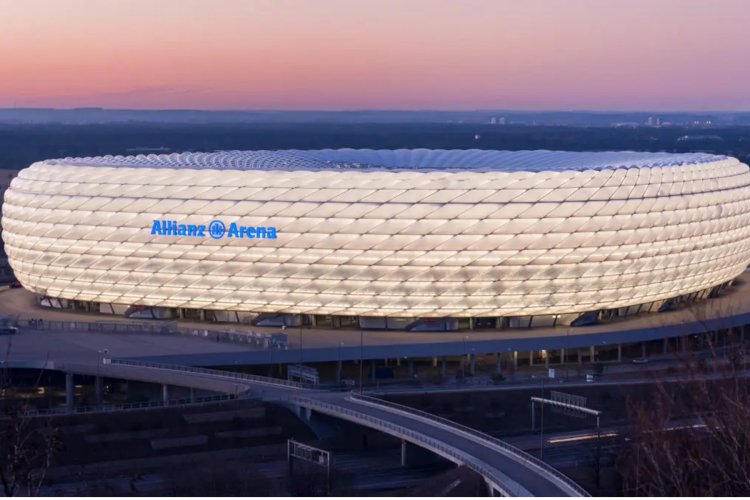
Capacity: 70000
Stadium host: FC Bayern
Munich, with a population of 1.6 million, is Germany's third largest city. Its rich history, many art galleries and variety of beers make Munich one of the most popular tourist destinations.
Opened in 2005, Arena Munich was built jointly by Bayern Munich and 1860 Munich but is currently owned solely by the Bundesliga giants. In 2012, this arena hosted the famous Champions League final, where Chelsea met Bayern, withstood the pressure and won in a penalty shootout. The Munich Arena was also one of the venues for EURO 2020 matches, including the quarter-final between Italy and Belgium.
Frankfurt - Waldstadion
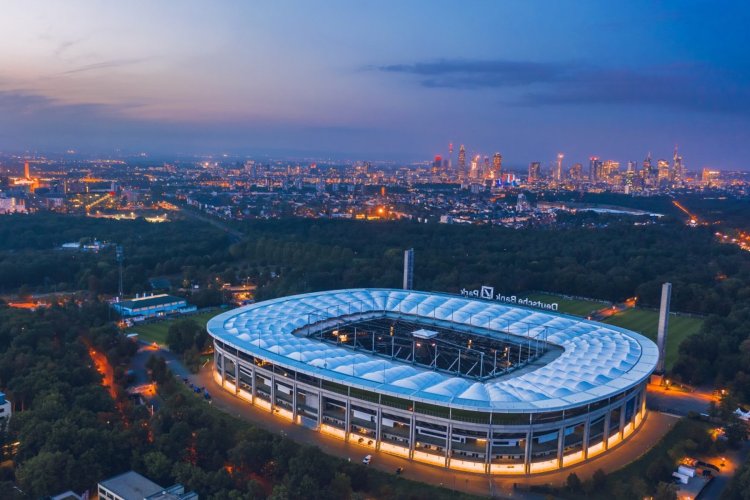
Capacity: 58000
Stadium host: Eintracht Frankfurt
The city of Frankfurt am Main, located on the banks of the Main River, is a world center of trade and finance. It ranks fifth among the largest cities in Germany and, due to its panoramic view with a high number of skyscrapers, is sometimes called Mainhattan.
The Frankfurt stadium, now called Deutsche Bank Park, was opened in 1925 and remains one of the leading sports arenas in Germany. This arena has hosted matches at various major tournaments, including the 1988 European Championship and the 2006 World Cup.
Stuttgart - Stuttgart Arena
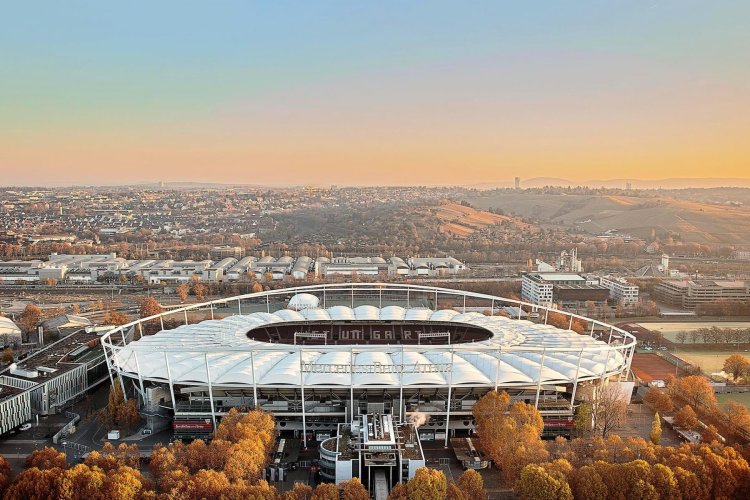
Capacity: 60000
Stadium host: FC Stuttgart
Stuttgart is a major industrial center where two automotive giants have their headquarters: Mercedes and Porsche. However, the city is famous not only for its automobile industry. Here tourists can enjoy local high-quality wines or try the famous flödlesuppe - soup with pancake chips.
The Arena Stuttgart stadium was built in 1933 and has been modernized several times since then. This arena hosted matches of the 1974 and 2006 World Championships, as well as the 1988 European Championship.
EURO 2024 will take place from 14 June to 14 July 2024.
We at fedafone love football and are happy to offer special rates for mobile Internet (10GB and 20GB) in Germany during the Championship!
